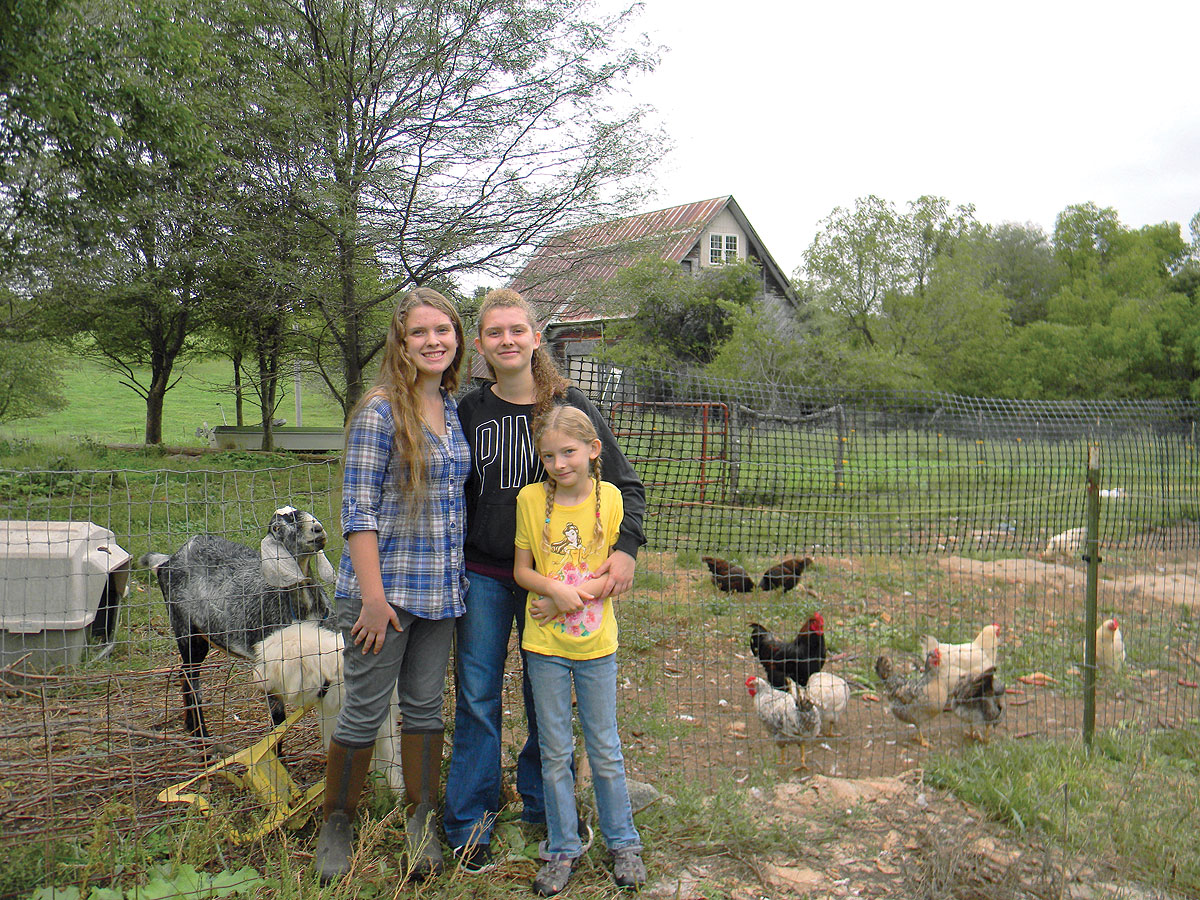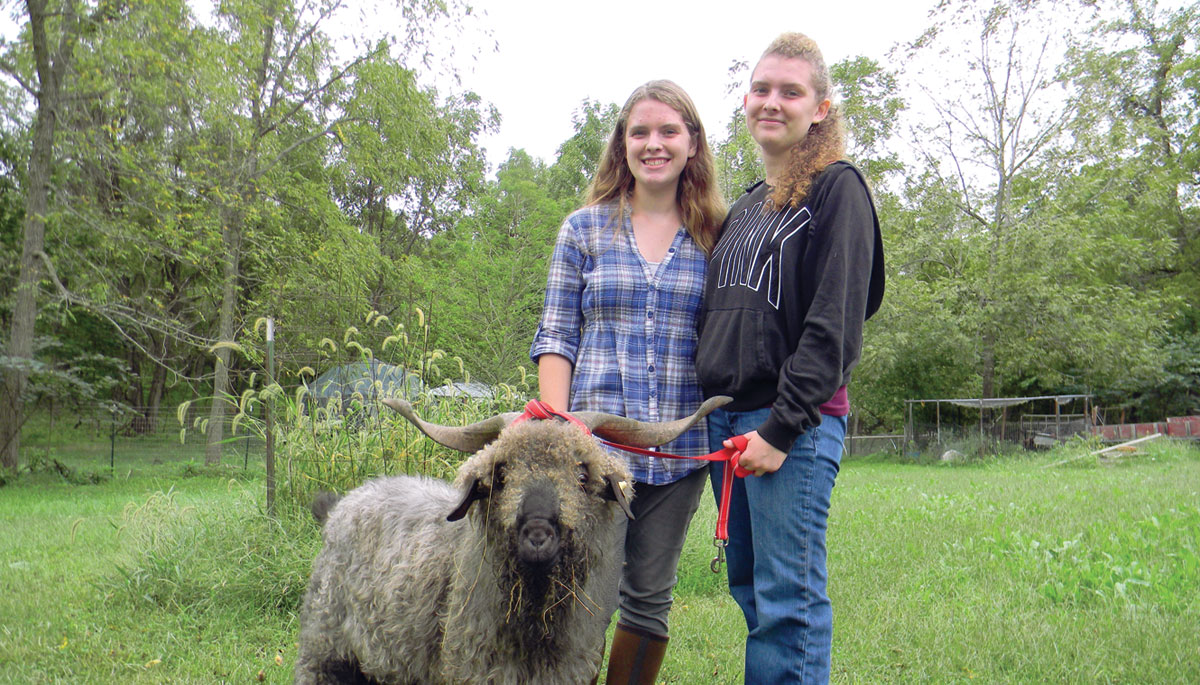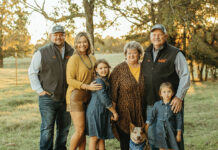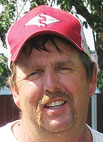
The Boyd sisters say they have an addiction to goats that began when they were children
Farms don’t always have to be a job; sometimes a farm is just for love and fun as is the case at Boyd Valley Farm.
Colleen, Kirsten, Abigail and their parents, Joe and Stephanie Boyd, have Nubian dairy goats, chickens and an Angora buck.
“In my dream world, there’s me, and I have all the goats and I just love them all and they love me and I just do whatever,” Colleen said.
She is attending college part-time to be a dental assistant but she plans to always have goats waiting for her at home. Kirsten and Abigail are homeschooled but Kirsten plans to go to school to be a registered nurse and Abigail hopes to be a hair dresser to help support their goat habits.
“Doing what you love is a big part of it. It’s like it’s addicting too,” Stephanie added. “Buying goats is addicting.”
The goat addiction started several years ago when Stephanie and her husband bought some goat kids for the girls.
“Then we bought Sunday and she was a bred doe, registered, and so those were our first kids born on our property,” Stephanie said. “There we were, thrown into having to milk when we’ve never done it but that’s what we wanted. We wanted to have our own milk. They loved it. (Abigail) was little, she never had cow’s milk and she used to go around to her grandmother’s house; she would have regular store bought milk over there and (Abigail) would go over to the sink and (say) ‘gross, cow’s milk’ and she’d be dumping it out. She noticed the difference in taste.”
“When we first got the goats, I was thinking, what are we doing? We’ve never done anything like this and we have no idea what we’re doing,” Stephanie added. “One morning I got up and I was kind of asking God let me know if this is what we’re supposed to be doing and then I opened up my Bible and started reading that morning. It was in Proverbs. I read that little chapter, get to the very end and it says something about how goats are the price of the field and that goat’s milk is for thy maintenance of thy maidens. And we have three daughters and so I was, like, OK God, that’s the answer. I never knew that goat’s milk was in there anywhere. That was an answered prayer right then.”
At first, the Boyds just bought whatever goats they found.
“We didn’t realize what we were buying,” Kirsten said.
They eventually decided to buy registered goats and learn more about what it takes to have a quality herd.
“We went with registered and now we’re finding that we need to build an udder on our does,” Stephanie said. “That’s our next thing we’re adding, is we need to add milk. We were getting just a little over half a gallon from one and our neighbor lady that’s been helping us, she said if they don’t produce a gallon, get rid of them. (Our best milker) gives almost a gallon.”
They had planned to have an Angora goat herd as well, but they had a very hard time finding does. They considered crossing the Angora with their Nubians.
“In the meat world, supposedly if you bred (Angoras) to Nubians, the hope is to get the best of both breeds in one goat,” Colleen said. “But, I really think we’re just leaning dairy right now mostly. We have (an Angora) buck. We just like the dairy goats better. There’s more enjoyment in the milking and their temperament too. We don’t think we are going to pursue (the Angora breed) anymore.”
“We have one (Angora buck) and we may only use him as stud services,” Kirsten added.
They have had people looking for Angoras come to them so they may just lease him out to people needing the services of an Angora buck. They plan to keep him regardless because they love him.
Right now the Boyds are working on expanding their goat pastures.
“We’re working on getting more cleaned up,” Stephanie said. “We have this section of woods that goes up to the highway, it’s our next pen and it’s really close to being (done).”
Lassie and Lucy are the livestock guardian dogs that stay with their goats.
“We let (Lucy) whelp (in the milking barn) because we weren’t milking yet,” Colleen explained. “Lassie was the runt and we thought we were going to lose her so we had bottled baby goats; we had a bottled puppy. She was the darkest one. Her full name is actually Molasses.”
“They’ve had two litters of puppies. From those, selling them, that’s how we’ve been able to buy the fencing that we’re putting up,” Stephanie added.
In fact, the dogs have been the main source of income to help support their goat ventures.
The Boyds have one other animal that has helped contribute to the farm. Colleen got started in some rare chickens.
“They’re Black Double Laced Barnevelder,” Colleen explained. “The Barnevelders if you look at them; they’re a Dutch breed,” Colleen explained. “They’re rare to the States. I got them mostly because I don’t like incubating because it’s a lot of work. They’re supposed to be broody and they have hatched a couple of clutches but they always do it at the most inconvenient times, like winter. That’s what they do. I got them for the eggs. I sold them for $48 a dozen. I have the Crested Cream Legbars. They lay blue eggs. They’re auto sexing. I sold their eggs for $30 a dozen. They were pretty popular a couple seasons.”
“She has people contacting her for those eggs. She just doesn’t have enough,” Stephanie added.
However, with Colleen starting college, she is starting to slow down on the chicken egg business to focus more on her schooling.
Colleen is also experimenting with making goat’s milk soaps and would perhaps consider selling it in the future. For now, the Boyds do it all for themselves and love every minute of it.







